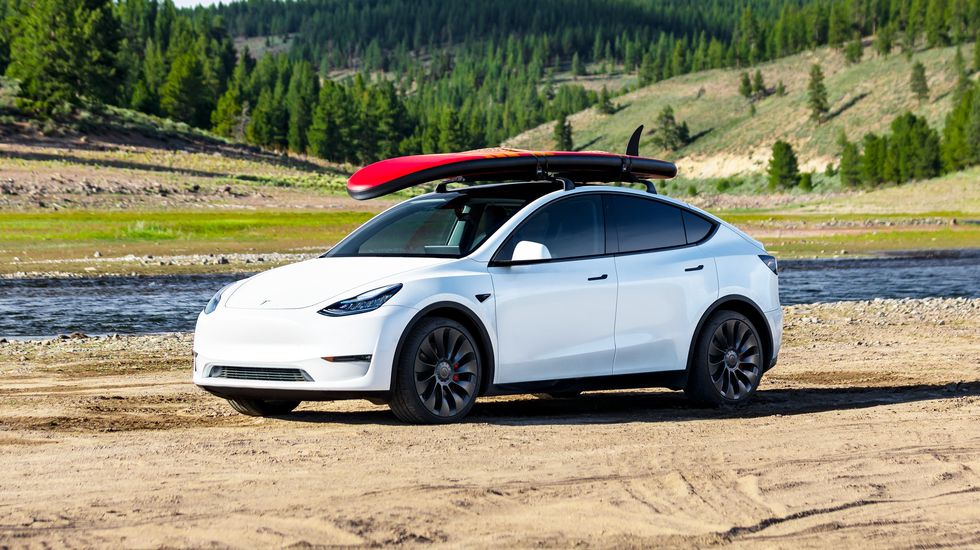- When Tesla released its infotainment screen-based gaming system, Passenger Play, owners rejoiced at the modern feature, but safety watchdogs took notice quickly.
- Launched in December 2020, the in-motion gaming feature was voluntarily limited by Tesla a year later, following a 2021 investigation by the NHTSA.
- The federal investigation has ended without a recall, though the agency says it will continue to watch the feature and brand closely.
Connectivity is a huge selling point for cars these days, especially for younger buyers who have grown up with a high level of interactive technology. And automakers are adapting to this shift, as models like the Hyundai Ioniq 6 and the new BMW i5 boast features like alternative-reality modes and built-in gaming consoles. But not all of these consumer-enticing technologies are kosher, the National Highway Traffic Safety Administration says.
In fact, the federal agency says manufacturers should be cautious when implementing interactive technology, as it closes its investigation into Tesla’s Passenger Play mode. Started in late 2021, the investigation into Tesla was prompted by the December 2020 release of its infotainment screen-based gaming mode for passengers that was available while in motion. Obviously, the implications of gaming and driving are dire, but Tesla’s gaming program lasted around a year before being voluntarily shut down.
Tesla claims a 97% completion rate for its over-the-air fix. Additionally, the company alleges it never received an official complaint or recorded crashes related to Passenger Play usage. Data from the NHTSA backs up this claim, though the agency says it will continue monitoring the technology.
Now, the investigation has come to a close, as the NHTSA says it will not issue a recall given Tesla’s previous compliance in locking the feature while in motion. However, the agency noted that prior to Tesla disabling the feature, a third of Passenger Play usage by the driver occurred while the vehicle was in gear. The investigation covered over 580,000 Tesla models produced between 2017 and 2021.
“The closing of this investigation does not constitute a finding by NHTSA that no safety-related defect exists,” the final report reads. “Furthermore, it does not foreclose the agency from taking further action if warranted, or the potential for a future finding that a safety-related defect exists through additional information the agency may receive.”
If over half a million units under investigation weren’t enough, Tesla is also subject to numerous investigations related to its Autopilot function. Specifically, the NHTSA and the US Department of Justice have opened investigations into the SAE Level 2 semi-autonomous driving system, with around 830,000 vehicles subject to federal probes. Both of these investigations remain ongoing, though the NHTSA will focus on the driving technology itself while the DOJ looks into claims of false advertising to consumers and investors.
As automakers continue to add interior technology and entertainment, the NHTSA urges manufacturers to “factor safety and driver distraction-prevention into their designs,” though it’s unlikely that legacy automakers would even think to follow in Tesla’s footsteps. Even so, some manufacturers are focused on integrating virtual reality and alternative reality into the car ownership experience, a strategy that is likely to warrant a close watch from regulators going forward.
Would you enjoy gaming or watching TV from an infotainment screen? Please share your thoughts below.
Associate Editor
A New York transplant hailing from the Pacific Northwest, Emmet White has a passion for anything that goes: cars, bicycles, planes, and motorcycles. After learning to ride at 17, Emmet worked in the motorcycle industry before joining Autoweek in 2022. The woes of alternate side parking have kept his fleet moderate, with a 2014 Volkswagen Jetta GLI and a 2003 Honda Nighthawk 750 street parked in his South Brooklyn community.
Read the full article here



